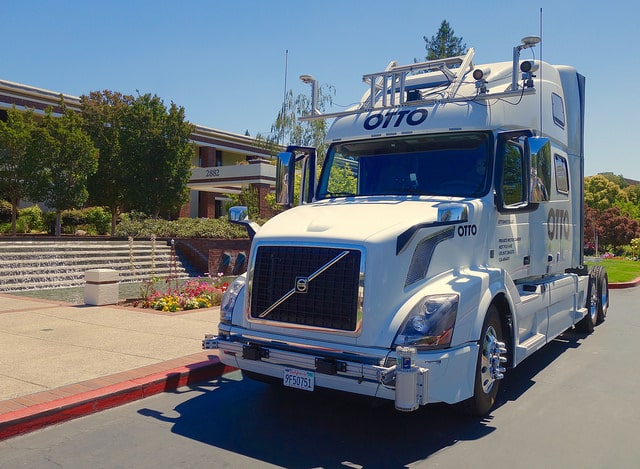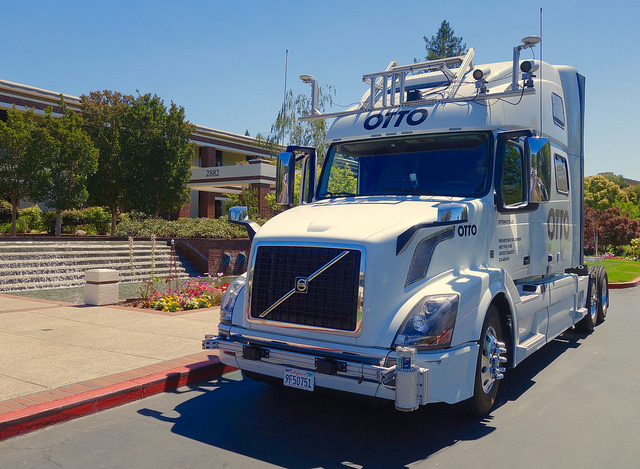
Will Autonomous Trucks Help the Industry Become Environmentally Friendly?
It is easy to dismiss the notion of self-driving vehicles as a pipe dream, but it isn’t. It’s closer to reality than most people think, with fully autonomous cars, buses, and trucks possibly on the road in a couple of years from now. And if that seems a rather optimistic prognosis, then consider this Tech Emergence report outlining the first successful driverless delivery.
Behind that groundbreaking delivery was San Francisco startup Otto, since bought by Uber and rebranded as Uber Advanced Technologies Group. During their test, an Otto-made self-driving truck delivered approximately 50,000 cans of Budweiser from Fort Collins to Colorado Springs, Colorado. The fully autonomous truck featured various technologies — machine vision and LIDAR, to name two — that together made driverless trucking possible, at least on that October 2016 test run.
We live in a world where self-driving trucks (and vehicles) are imminent, even as questions about their safety will continue to linger. But there’s an equally important question at play as well: Will autonomous trucks help the industry become environmentally friendly?
The answer is yes — in theory, at least. Time’s feature on the environmental impact of self-driving vehicles explains that these high-tech cars, buses, and trucks can, indeed, have a positive impact on the climate. Autonomous vehicles, being fully electric, will purportedly reduce energy consumption in the transportation sector by as much as 90%. This is particularly relevant given how the sector is responsible for over a quarter of all greenhouse emissions. Such a steep reduction in energy consumption will lead to a precipitous decrease of greenhouse gases in the atmosphere.
Just as important, self-driving trucks will reduce the need to use fossil fuels, a finite resource that is gradually getting depleted. The trucking industry is one of the top fuel consumers. Full on-the-road autonomy is likely the only recourse to reduce this level of fuel consumption.
The US government has started implementing rules to help reduce emissions. One such step was undertaken way back in 2008 in the form of the Clean Acts Program which we reported on here. Part of the program was the banning of trucks built prior to 1989 from going in and out of the ports of Los Angeles and Long Beach. At present, the Federal Motor Carrier Safety Administration (FMCSA) has taken the lead in ensuring not only the safety of everyone involved in the industry, but also in making sure it is environment friendly. The FMCSA’s Electronic Logging Device (ELD) Mandate, passed last December, was brought in to reduce road fatalities caused by overdriving. Yet a positive side benefit of the technology is that it is also helping fleet companies improve their carbon footprint. Verizon Connect explain that companies can use the ELD’s data to monitor fuel efficiency. By examining the driver’s habits, fuel-wasting practices like bad route planning, speeding, and needless idling can be stopped. The ELD Mandate is considered a big step towards autonomous vehicles, and future vehicles will likely adopt this technology in some form.
Whatever the future holds for the industry is yet unclear, but one thing is certain: It holds much promise for a cleaner industry. And that is very good news for the environment.
Author Bio: James Roberts has been writing about the complicated relationship between technology and the environment since he graduated. His primary focus is examining innovations that will have a minimal effect on the environment, and even help reverse climate change. In his free time he loves to hike with his friends.




Lewis Johnson
Very important to remember that these autonomous electric vehicles will reduce environmental pollution if we change the way we produce power. If we put the electric vehicles on the road but we are still using fossil fuels to generate electricity then electric vehicles become useless, I would even go further and say they become inefficient and more pollutants. We need to generate electricity from renewable energy sources so we can then power these electric vehicles with clean energy from the source.